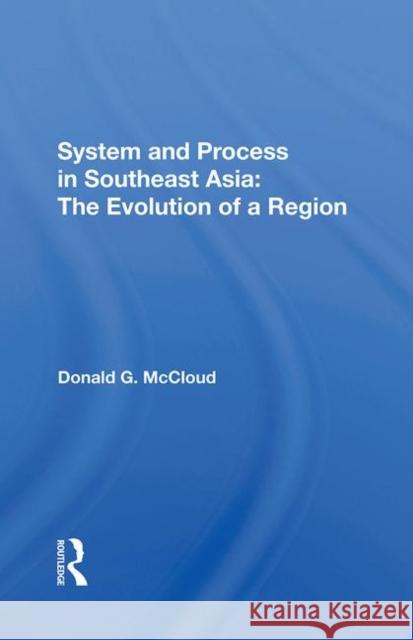System and Process in Southeast Asia: The Evolution of a Region » książka
System and Process in Southeast Asia: The Evolution of a Region
ISBN-13: 9780367289386 / Angielski / Twarda / 2019 / 315 str.
System and Process in Southeast Asia: The Evolution of a Region
ISBN-13: 9780367289386 / Angielski / Twarda / 2019 / 315 str.
(netto: 676,35 VAT: 5%)
Najniższa cena z 30 dni: 654,86 zł
ok. 16-18 dni roboczych.
Darmowa dostawa!
Southeast Asia, although not garnering the headlines of ten to twenty years ago, is important in global politics. Vietnam's domination of Indochina, for example, has polarized the region, given the Soviet Union new regional access, and magnified the military threat to Thailand. Insurgency movements supported by the radical Left or Right continue to plague governments. The Strait of Malacca, the major sea-lane through Southeast Asia, provides primary access for the U.S. Pacific fleet to the Indian Ocean and the Middle East and is Japan's oil lifeline. U.S. commercial and military interests remain strong in the Philippines and are expanding in Indonesia, the world's fifth largest country (with a population approaching 170 million people), whereas Thailand, Malaysia, and Singapore are sources for investment, raw materials, and potential markets. Thailand, once closely allied with the United States, has again renewed those ties in the face of Vietnam's expansion. This comprehensive, up-to-date textbook analyzes Southeast Asia in the context of regional and global political systems, both traditional and contemporary. After looking at the traditional patterns of interstate relations in the region, Professor McCloud shows that Southeast Asia has been and continues to be dependent on the global system. However, he also identifies a "neotraditional current" in contemporary Southeast Asian politics, as elements of traditional beliefs and values reassert themselves in policy and practice, redefine the patterns of interstate behavior in the region, and set the limits to dependence on the global system. The book is intended as a primary text for courses on the history or politics of Asia or Southeast Asia, regional development and integration, and the role of Southeast Asia in world politics. It will also be useful in survey courses in Asian studies, comparative politics, and Third World development.











